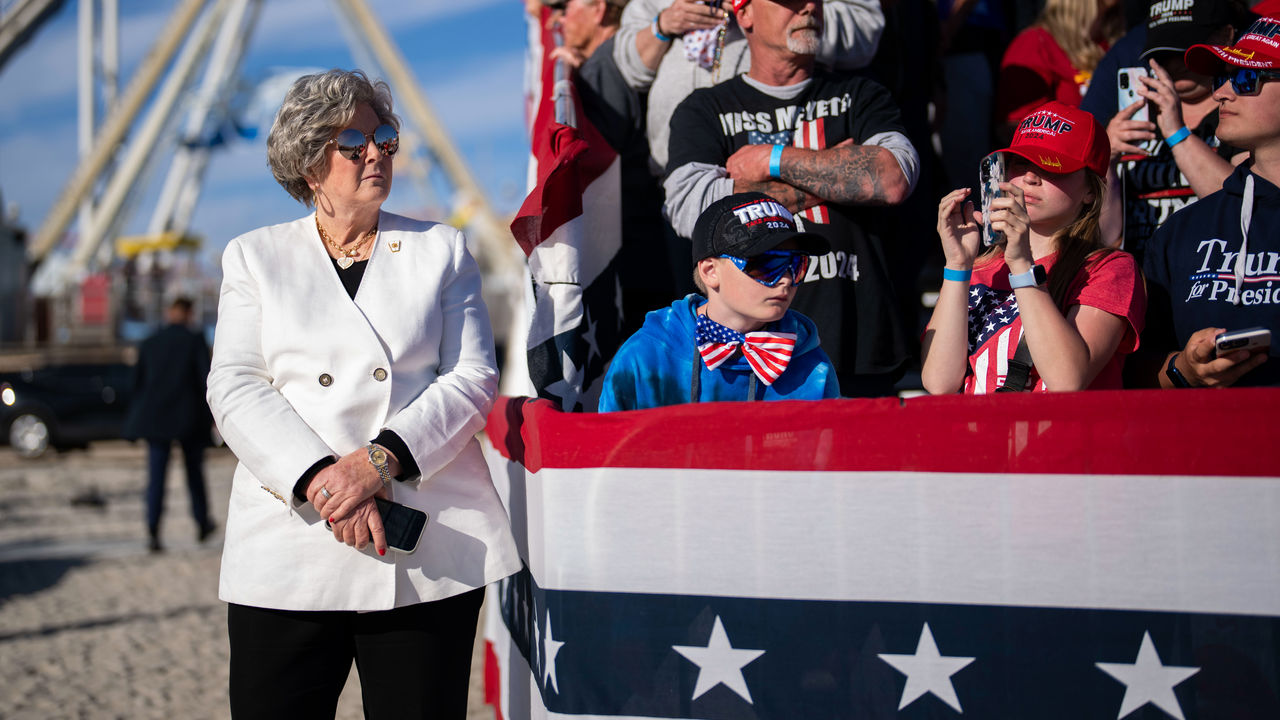SUSIE WILES cannot control everything. Take Donald Trump, her boss: his rants on the campaign trail, his unvetted social-media posts, his questionable guests at Mar-a-Lago. Some of these over the past three years, made her job harder. The Democrats, too, are beyond her reach—their decision to replace Joe Biden, around whom Ms Wiles had designed a campaign, scrambled her plans.
But Ms Wiles, a 67-year-old grandmother who has spent decades helping Republicans get elected in Florida, works hard to control what she can. She is level-headed, highly organised and a problem-solver. With her boxy blazers, mirrored shades and hair so blond it sometimes appears silver, she can seem severe—but is by all accounts warm and affable. She has developed a powerful network of politicians, policy types, lobbyists and reporters. The loyal staffers she has brought over to the Trump campaign are known as the “Florida mafia”.
Her success as de facto manager of Mr Trump’s campaign will depend on what voters do on November 5th. But the low-key Ms Wiles, who avoids photo ops and is reportedly quick to give others credit, has already achieved a lot. Mr Trump left the White House in 2021 as a political pariah. He is on the verge of a triumphant return.
She has acknowledged to Politico that she sees similarities between the former president and her late father, Pat Summerall, an American-football player, who became a famous sports broadcaster, and an alcoholic. Like Mr Trump he was a very hard man to manage. Her mother ensured that the home functioned well in spite of him, before finally convincing him to get treatment.
Ms Wiles grew up prosperous in New Jersey, playing tennis and basketball. She got her start in politics by working for Jack Kemp, a Republican congressman from New York who had been her father’s teammate. She worked for Ronald Reagan, on his presidential campaign and in the White House, and in 1985 moved to Florida with her then husband.
Ms Wiles started a political-consulting firm in Jacksonville and raised two daughters. She worked for three Republican mayors and developed a reputation as a smart, pragmatic and well-connected operative. She helped an unknown businessman named Rick Scott win the governorship (he is now in the Senate). She seems to be motivated more by the challenge of winning a campaign than by ideology. None of her previous bosses, however, has been as challenging as Mr Trump.
Florida was a swing state in 2016, considered by some a bellwether. Mr Trump cold-called her to head up his operation in Florida, where he lived part-time at Mar-a-Lago, his resort in Palm Beach. “As a card-carrying member of the [GOP] establishment, many thought my full-throated endorsement of the Trump candidacy was ill-advised—even crazy,” Ms. Wiles told the New York Times in 2016. After a polling dip he nearly fired her that autumn (a dressing down reportedly delivered while he was eating a steak at Mar-a-Lago), but she insisted she could deliver.
As Florida went, so went the country—for Mr Trump. Ms Wiles then worked for Ron DeSantis, a little-known congressman whose bid for governor was salvaged when Mr Trump endorsed him. He won, but made the unwise decision to cut ties with her. She helped Mr Trump win Florida in the 2020 election, though he lost the presidency. After his defeat, and the January 6th Capitol riot, it was far from certain that he would run again. But in early 2021, when few others would have taken the gamble, she agreed to join the board of a fund-raising committee he was setting up to channel money to midterm races. Within weeks she took control of a chaotic post-White House operation, which was endorsing down-ballot Republican candidates, covering Mr Trump’s allies’ legal fees and charting the ex-president’s next steps. .
By November 2022 he had declared he would run again. Ms Wiles and Chris LaCivita, her campaign co-manager (though in practice not her equal), developed a strategy that would play to their candidate’s strengths. At first Mr DeSantis, who aspired to be the Republicans’ presidential candidate, had more money and a bigger operation in Iowa, where the first Republican primary takes place. So rather than knock on endless doors, they used a lean, targeted plan to identify Trump fans who might not even be registered to vote. They won Iowa in a landslide. In the general election they pushed—successfully, according to poll numbers from July—an utterly simple narrative: Mr Biden was weak, and Mr Trump was strong. They similarly pushed for a bare-bones party platform—no more “textbook-long” treatises, they wrote. The resulting 16-page document bore Mr Trump’s signature policy proposals, rendered in his style (“We are a Nation in SERIOUS DECLINE”).
Ms Wiles has claimed to have convinced her boss to do some practical things: for example, urge his supporters to vote by mail and tone down the stolen-election comments. In reality he remains paranoid about election integrity, cannot help but insist that he won in 2020 and has never stayed “disciplined” for long. But his message still resonates, his delivery still thrills, his character flaws still leave many Republicans undeterred and either enthusiastic supporters or ready to hold their noses and vote for him. If enough of them do, Ms Wiles might be heading for an even harder Trump-management job. He may well offer her the job of White House chief of staff. ■

 Accounting1 week ago
Accounting1 week ago
 Economics1 week ago
Economics1 week ago
 Personal Finance1 week ago
Personal Finance1 week ago
 Accounting1 week ago
Accounting1 week ago
 Finance1 week ago
Finance1 week ago
 Economics1 week ago
Economics1 week ago
 Economics1 week ago
Economics1 week ago
 Economics1 week ago
Economics1 week ago










